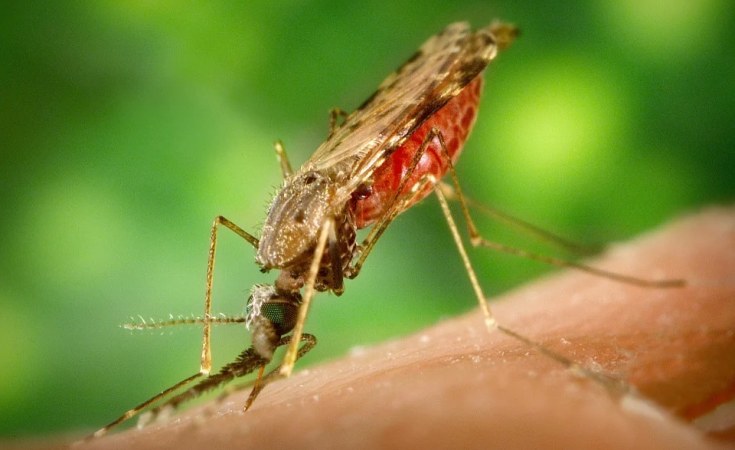The Minister for Health, Dr. Ruth Aceng has announced that Malaria cases at the outpatient Department (OPD) in epidemic districts have dropped from 109,938 in March 2023 to the current 58,822 a drop of 46%.
She also says that there has been a reduction in admissions from 6,216 to 3,772 which is a drop of over 40%.
Malaria epidemic was declared in October 2022, where a total of 73 districts across the country had been affected by the surge in Malaria.
However, according to the minister, Malaria has gone down from 73 districts in October last year to now 12 districts that are still above the threshold and the drop has been realized due to a number of interventions.
She added that the Indoor Residual Spraying (IRS) that was deployed in the sub-regions of Busoga, Lango and Bukedi (Namutumba, Tororo, Budaka, Butebo, Pallisa and Bugiri, Butaleja Districts) has contributed to the reduction of Malaria cases, admissions and deaths.
The minister was updating on government's ongoing campaign to distribute 28.5 million free Long Lasting Insecticide treated mosquito Nets (LLINs) across the country.
This universal coverage campaign, is focusing on behavior change aimed to achieve consistent net use, net repair, repurposing and tackling the social norms that bar utilization.
"The use of mosquito nets has shown to reduce childhood mortality by up to 25% and for this reason the Ministry of Health has adopted the policy that all distribution of mosquito nets at public hospitals should be of lasting insecticide rather than other conventional nets," the Minister for Health, Dr Ruth Aceng says.
The campaign is being carried out with funds from the government and support from The Global Fund, Against Malaria Foundation and USAID/Presi- dential Malaria Initiative.
This will be the fourth mosquito nets distribution campaign being conducted. The first one was in 2013/2014, the second was undertaken in 2016/2017, the third in 2019/20 and the fourth started in April this year and will run til November.
The campaign dubbed 'Under the Net' is carried out in a wave based manner and distribution starts in districts with highest prevalence of Malaria.
Under the wave one, 16 districts were covered. These are; Alebtong, Amolatar, Budaka, Bugiri, Butebo ,Kaberamaido, Kalakai, Kibuuku, Namutumba, Paliisa, Isingiro, Kakumiro, Lyantonde, Ntoroko, Bukedea and Kibaale.
Distribution of nets under the wave 2 started from July 15 to 20 in the 10 Districts of; Buhweju, Kalangala, Sheema, Rubirizi, Kiruhura, Mitooma, Serere, Soroti District, Namisindwa and Lira District. Additionally, Soroti and Lira Cities will also be covered in this wave.
Accordingly, the number of people in the household will determine the number of nets to be given out. One net will be distributed per two people as defined by the World Health Organization universal coverage.
How to get the nets
Individuals are only required to register for the net once the community resource person VHT/CMD comes to their homestead to register them.
All members of the household are required to be registered including the elderly and those with any form of disabilities.
Those who will not have been registered shall report immediately to their VHTs within a period of two days on closure of the registration exercise. They will also need to go to the distribution point to receive their mosquito net on a date that will be communicated by their village resource person.
After registration, a date will be communicated by local resource person on how the distribution will be done. Distribution will be done at a local location at village level, where a member of the household shall go to the distribution point to pick their nets.
The initiative is part of government's effort's to reduce the prevalence of Malaria in the country.
According to available data, for every ten sick people in Uganda, three have malaria.
Data further shows that for every 10 children below five years admitted in hospital, four are due to Malaria and may die.
For every 100 pregnant women, 20 have Malaria and risk losing their babies or their own lives.
On average, Malaria kills over 14 people per day. This is equivalent to a taxi vehicle crush- ing on a daily basis killing all its occupants.
To end Malaria, government has recently adopted a number of strategies including Indoor Residue Spraying (IRS), Larval Source Management among others.
Government also plans to introduce the malaria vaccine starting next year. The vaccine will be administered to children at the month of six, even and eight. This is expected to start in September next year.


